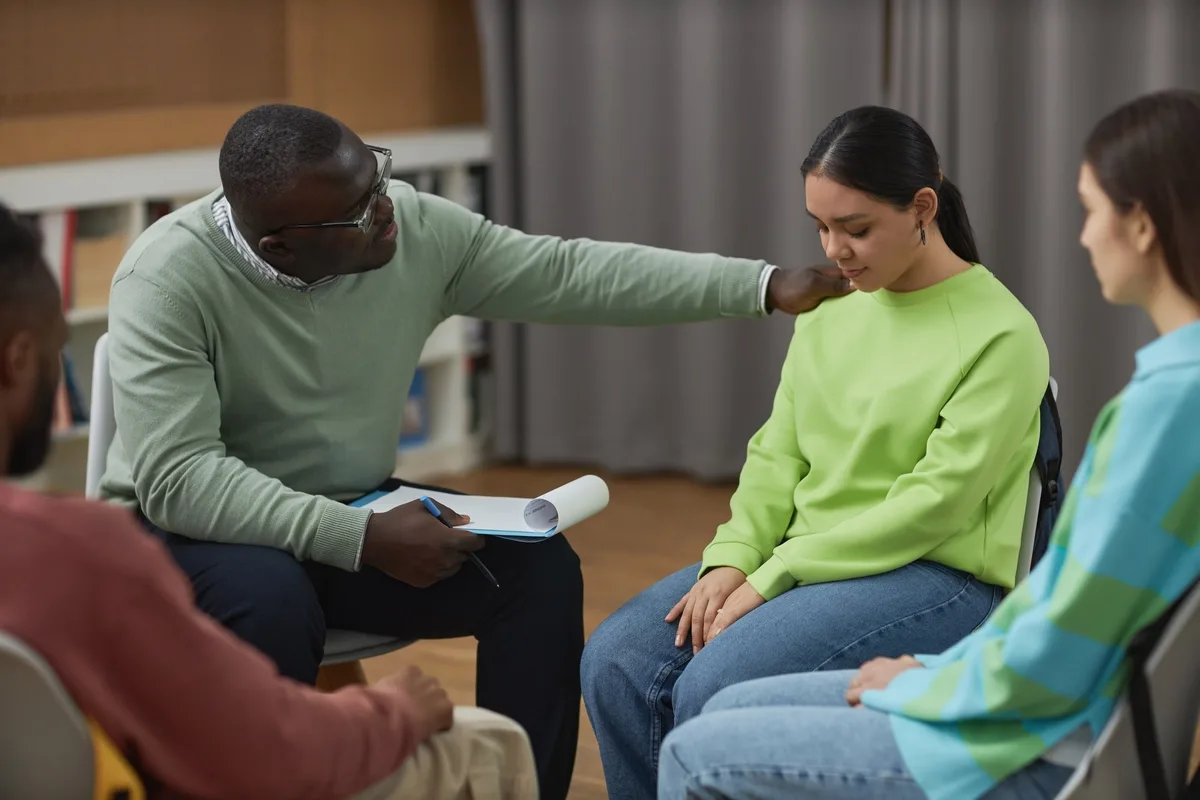24/7 Helpline:
(866) 899-221924/7 Helpline:
(866) 899-2219
Learn more about Aftercare Support centers in Columbus County

Other Insurance Options

State Farm

Holman Group

Absolute Total Care

Ambetter

MHNNet Behavioral Health

Premera

Health Net

Excellus

Coventry Health Care

United Health Care

Kaiser Permanente

Self-pay options

Horizon Healthcare Service

Ceridian

MVP Healthcare

Group Health Incorporated

Magellan Health

Health Partners

CareSource

Multiplan

Allied Behavioral Management
Allied Behavioral Management is a private rehab located in Whiteville, NC. Allied Behavioral Managem...

Advantage Behavioral Healthcare
Advantage Behavioral Healthcare - Davis Avenue offers outpatient treatment for individuals with alco...

Robeson Healthcare Corporation
Robeson Healthcare Corporation - Hill Plaza is a non-profit rehab located in Whiteville, North Carol...
























































































































AA – Alcoholics Anonymous
AA – Alcoholics Anonymous is a non-profit rehab located in Whiteville, North Carolina. AA – Alcoholi...

Rouse Counseling & Consulting
Rouse Counseling & Consulting is a private rehab located in Whiteville, North Carolina. Rouse Counse...

Clean and Clear Evaluation
Clean and Clear Evaluation is a private rehab located in Whiteville, NC. Clean and Clear Evaluation ...












































































